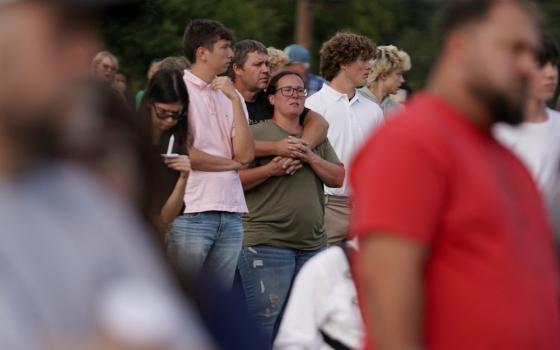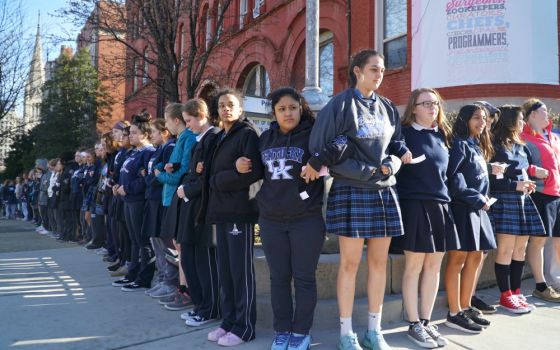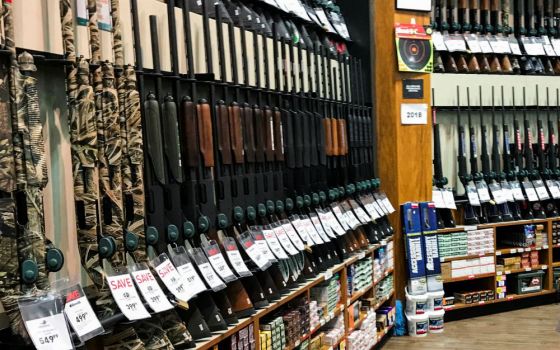President Barack Obama issued on Jan. 5 a modest and limited set of executive orders -- some not really orders even, but "guidance" and suggestions -- that will tweak laws that regulate the commercial trade in firearms and make available more resources to agencies responsible for background checks on gun purchases. Despite the bombastic, hyperbolic sound bites from the president's political opponents and from paid lobbyists of the gun industry, Obama's orders will not take guns away from anyone, and they will not criminalize law-abiding citizens. He is not tampering with the Second Amendment or violating any other parts of the Constitution.
Over the last 10 years in the United States, more than 100,000 people have been killed as a result of gun violence -- and millions more have been the victim of assaults, robberies and other crimes involving a gun. Mass shootings make headlines, but as Obama noted, gun violence "happens on the streets of Chicago every day."
Regrettably, none of the orders, guidelines and suggestions Obama issued Jan. 5 will make a big dent in America's gun violence epidemic. What the president did do, however, was make good on a promise he made in August after the mass shooting at an Oregon community college: He is politicizing the issue.
Gun violence is "is something we should politicize," Obama said in August. "This is a political choice that we make, to allow this to happen every few months in America. We collectively are answerable to those families who lose their loved ones because of our inaction."
We couldn't agree more.
Noting that the president choked up at times, shed tears and then expressed anger and frustration over the legislative stalemate the issue of guns causes, some commentators called Obama's Jan. 5 speech political theater. If that is criticism, it is misplaced. This was political theater at its best. It is keeping the issue before the public in a dramatic way.
In this debate, we need to make a clear distinction between elected officials and the gun industry's paid lobbyists on one hand and, on the other hand, the constituents these bodies claim to represent. The vast majority of gun owners are responsible, law-abiding citizens. Polling data and anecdotal evidence tell us that most support common-sense measures to end the epidemic of gun deaths.
An October CBS News/New York Times poll found 92 percent of Americans -- including 87 percent of Republicans -- favor background checks for all gun buyers. A Quinnipiac University survey of 1,140 registered voters had similar results in December. In every one of 15 subgroups, including Republicans, men, gun owners and rural residents, at least 84 percent supported background checks for sales at gun shows or online.
To build a public consensus that will withstand the onslaught of deep-pocketed professional lobbyists and the politicians they bankroll, we need to foster a conversation between gun owners and other citizens who want to see gun laws changed.
Grassroots groups exist that can help these conversations. One coalition that NCR has featured in recent months is Faiths United to Prevent Gun Violence. We need to find more groups doing this kind of work.
What we are seeking is a cultural shift in the way we talk about guns. It won't be easy, but it is not impossible, and we believe we are witnessing a precedent for such a cultural shift on an emotional issue.
We are seeing such a cultural shift on the death penalty debate (LINK). Even those who would intellectually favor capital punishment are finding more and more practical arguments to stop it. We could well be in sight of the end of the death penalty in this country -- an idea that seemed far-fetched even five years go. That should encourage those seeking a public consensus on curbing gun violence.
In this highly charged political environment, carving out a space where we can have reasonable discussions about common-sense measures to limit gun violence is an important first step. Catholic groups and individuals have had a prominent role in the debate over the death penalty. We believe that Catholic role can be duplicated in the debate over gun violence.



